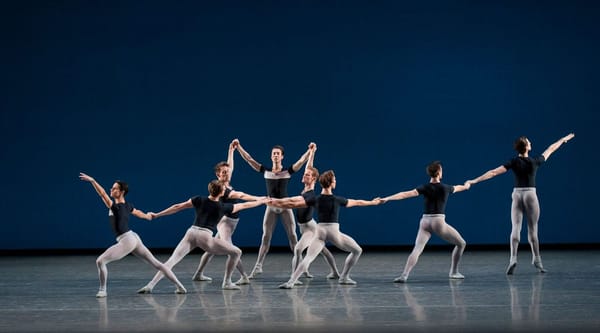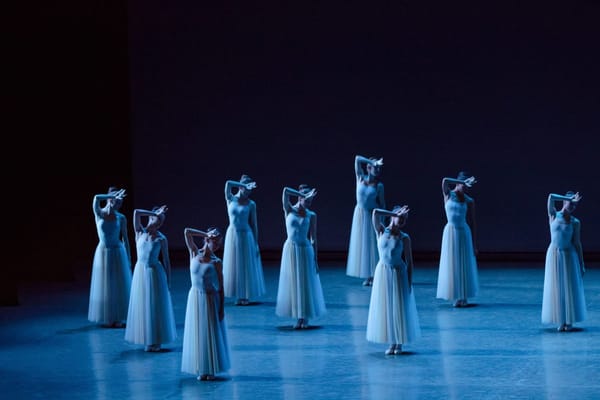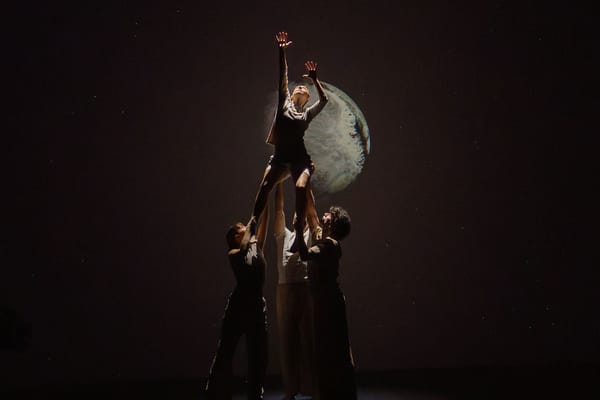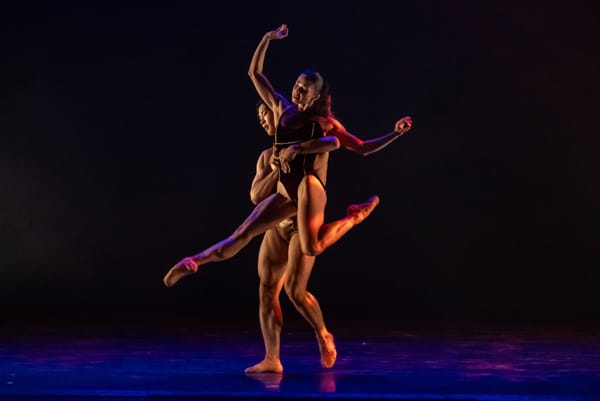Flightless Birds
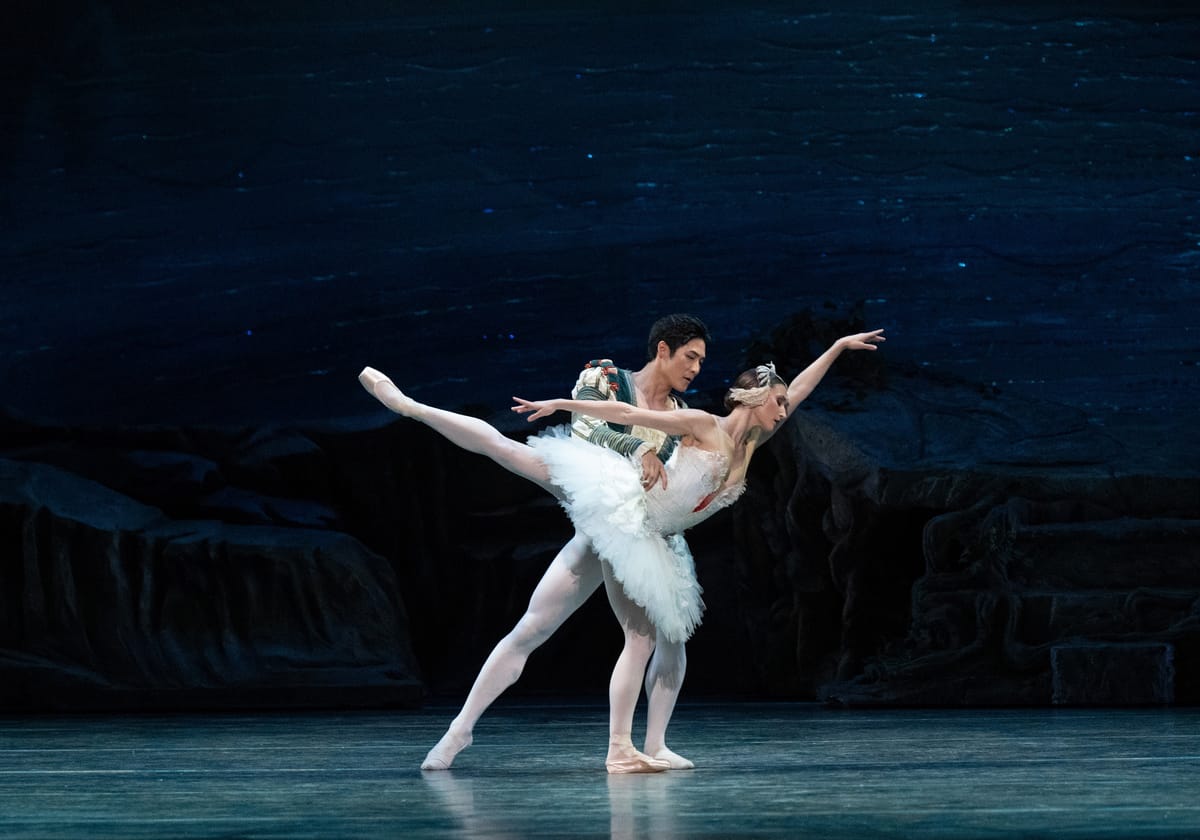
“Swan Lake”
American Ballet Theatre
Metropolitan Opera House
New York, NY
July 17 and 19, 2025
In a move full of risk and opportunity, American Ballet Theatre bookended its Met season with two blocks of its production of “Swan Lake,” now in its 25th year. The immortal classic, even in ABT’s flawed rendition, remains a tried-and-true blockbuster, but more crucially serves as an unforgiving vehicle for showcasing and assessing a company’s talent. While all eyes this season were on Chloe Misseldine, who made a splash as Odette/Odile last year and earned a promotion, it was interesting to watch the company’s other and more established, lyrical leads – Christine Shevchenko and Devon Teuscher – particularly as they worked to close out the season.
Both lead casts were uneven. In the first, Shevchenko, partnered by Calvin Royal III, came off as the real royalty with dignified and emotionally nuanced demeanor, compared to the largely awkward Prince Siegfried who often seemed lost on his own stage. Royal overpunctuated every moment of his entrance solo, sitting in fifth position just a second too long after each move, and sporting a smile that seemed put-on, rather than genuinely joyous. His attempts at curiosity and attraction to Odette in the crucial lakeside scenes felt studied and hollow. But by then the audience could gratefully shift focus to Shevchenko’s eloquent swan, whose rapid-fire bourrées during their first physical contact were so quick and tremulous she appeared to be shivering with genuine fear.
What followed was a sumptuous portrayal of a creature fully engaged with her animal instincts – in both the opening scene and the adagio, she was a bird torn between curiosity and innate urgency to be on guard, which sometimes made her pull away from Royal and his clumsy advances. Even ABT's rather silly pantomime recounting of Odette's backstory gained gravitas through Shevchenko's commitment, transforming caricature into pathos. She continued to build out the emotion too, which by the coda seeped into the technical elements as well, which started out clean and crisp and kept building with intensity with each passé relevé.
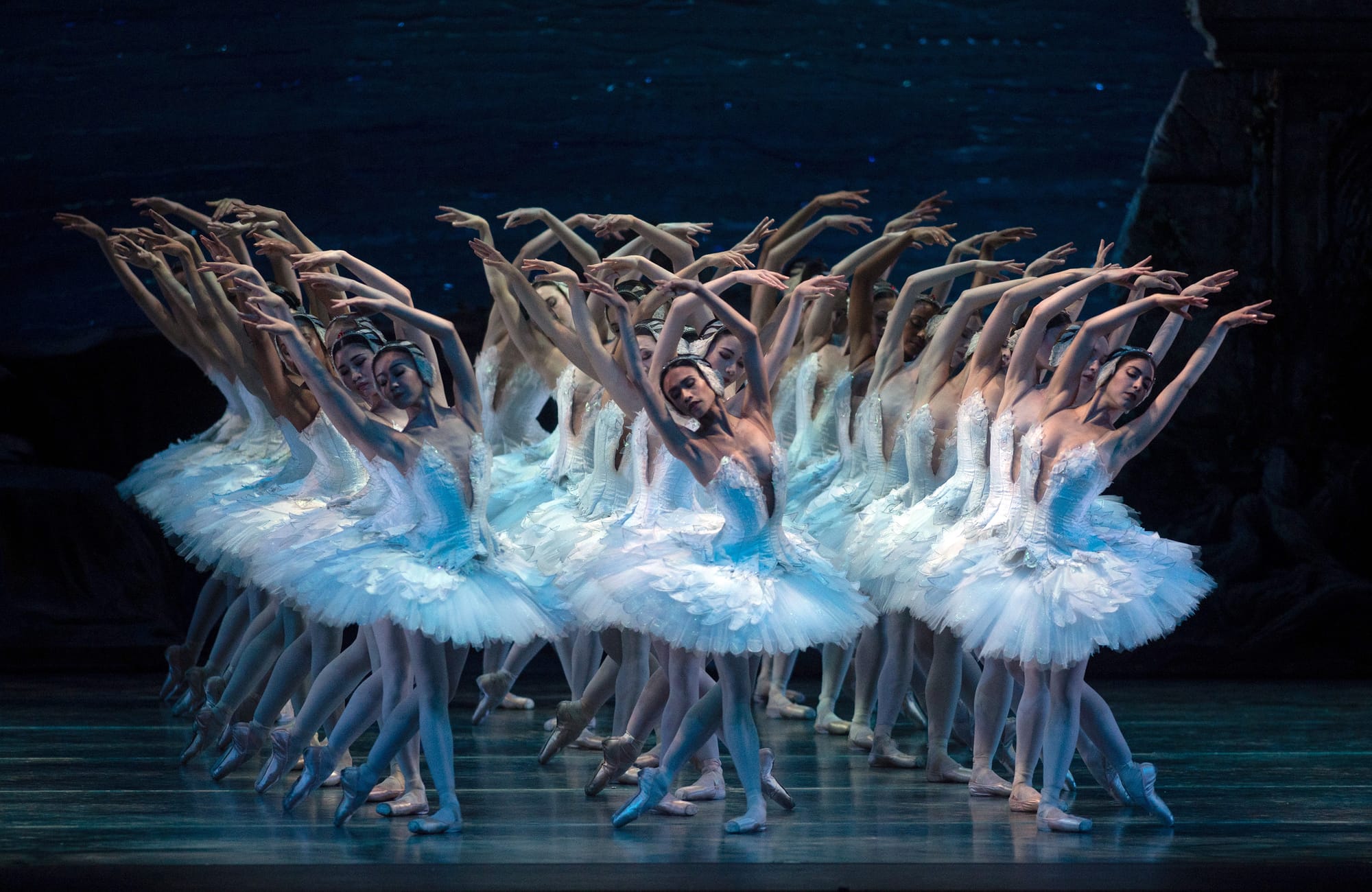
The second cast revealed a complete reversal of fortune, with Joo Won Ahn aglow as the Prince compared to Teuscher’s strangely resigned, emotionally vacant Odette. After Ahn’s shimmering first act – which left no doubt why his subjects were so joyous living in this charismatic Siegfried’s kingdom – the lake scenes felt ominously foreboding, and not just in regards to the plot. Teuscher was dancing, not telling a story, and it was a shame, as this Prince was eager for the connection she refused to provide. Only in one adagio embrace did we finally see tenderness and vulnerability, and signs of how rich this partnership could have been.
All the while, the corps work, while technically solid, felt oddly disconnected from the dramatic action, perhaps a sign of five long weeks of dancing. Still, the moves were clean and the patterns precise. But for the miscasting of cygnets in the first performance, where lack of height uniformity took away from the iconic dance, the dancers were a convincing, if weary flock.
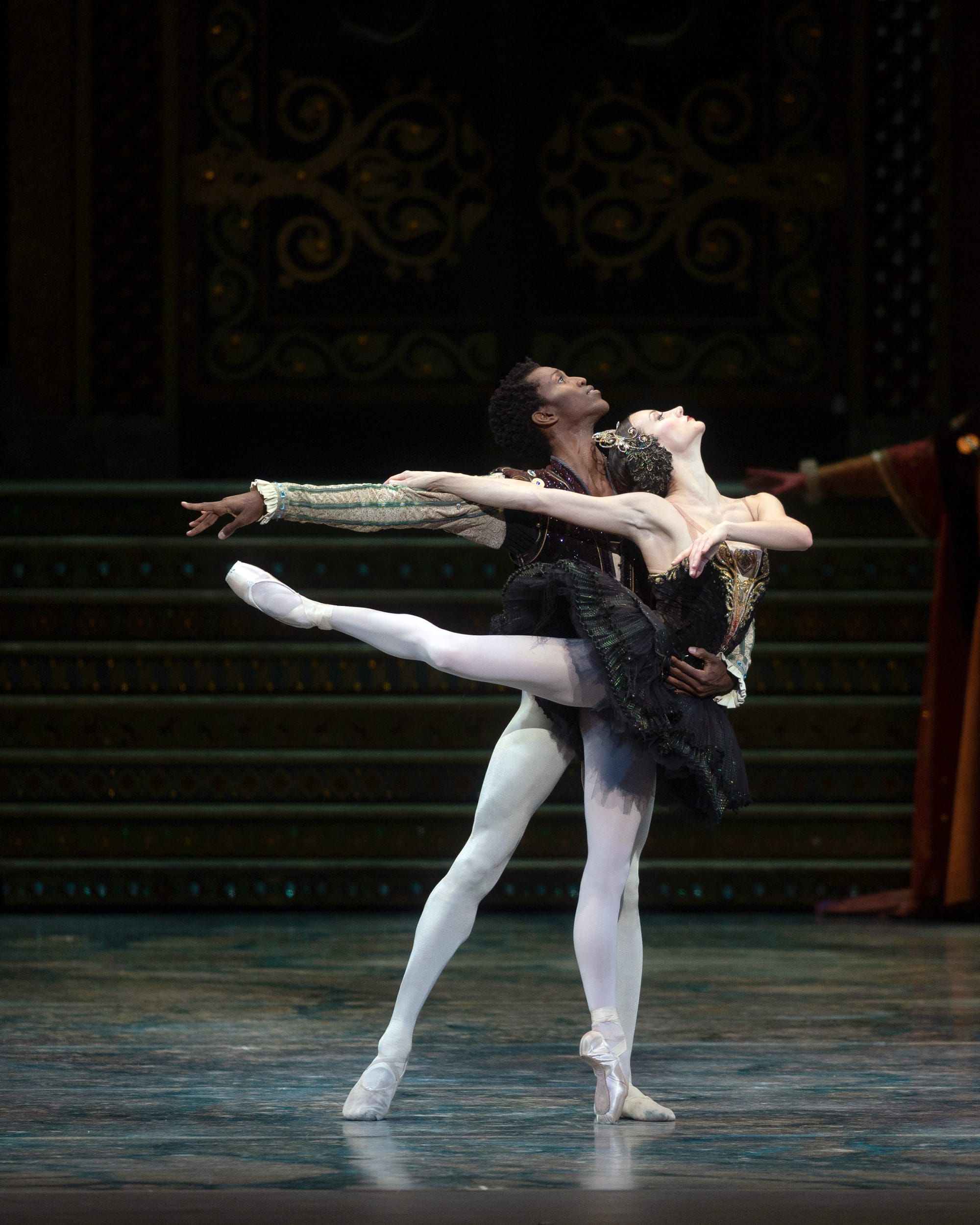
The Act III ballroom scenes fared worse with both lead pairings, though the women's fouettés provided moments of genuine excitement – both women included doubles, and Teuscher even chose to perform all of the first 16 counts in that way. Technical prowess alone, however, is not enough, and while the Odile pas de deux is not as emotionally charged as the Odette scenes, it always benefits from artistic nuance. Shevchenko's Odile was curiously bloodless, lacking the predatory flair or dazzling attraction that make von Rothbart's deception credible, while Teuscher managed only the faintest hint of flirtation, her seduction attempts reading more like polite conversation than soul-destroying manipulation. With that, both Princes appeared appropriately confused, though one suspected this stemmed more from their partners' unclear intentions than any conscious character choice.
Thus, the famous pas de deux fell flat on both nights, with the act redeemed only by the buildup of the ethnic dances, almost all of which hit the mark. Of many memorable moments, the second night’s Neapolitan Dance, full of virtuosity from Carlos Gonzales and Andrew Robare, and Czardas, with Courtney Shealy and Duncan Lyle letting their emotions fly, stole the show. It was a welcome and exciting set of dancing before this production’s nadir – the very odd Russian Dance that was converted by Kevin McKenzie into von Rothbart’s seduction scene of the various international princesses. To me, this choreographic vandalism remains mystifying after 25 years – repurposing music explicitly composed and intended to be a Russian dance into a scene devoid of any recognizable Russian movement vocabulary borders on cultural tone-deafness. That the scene has calcified into a set of lightly comedic tropes only worsens the effect and makes one want to return to the ballet’s main narrative.
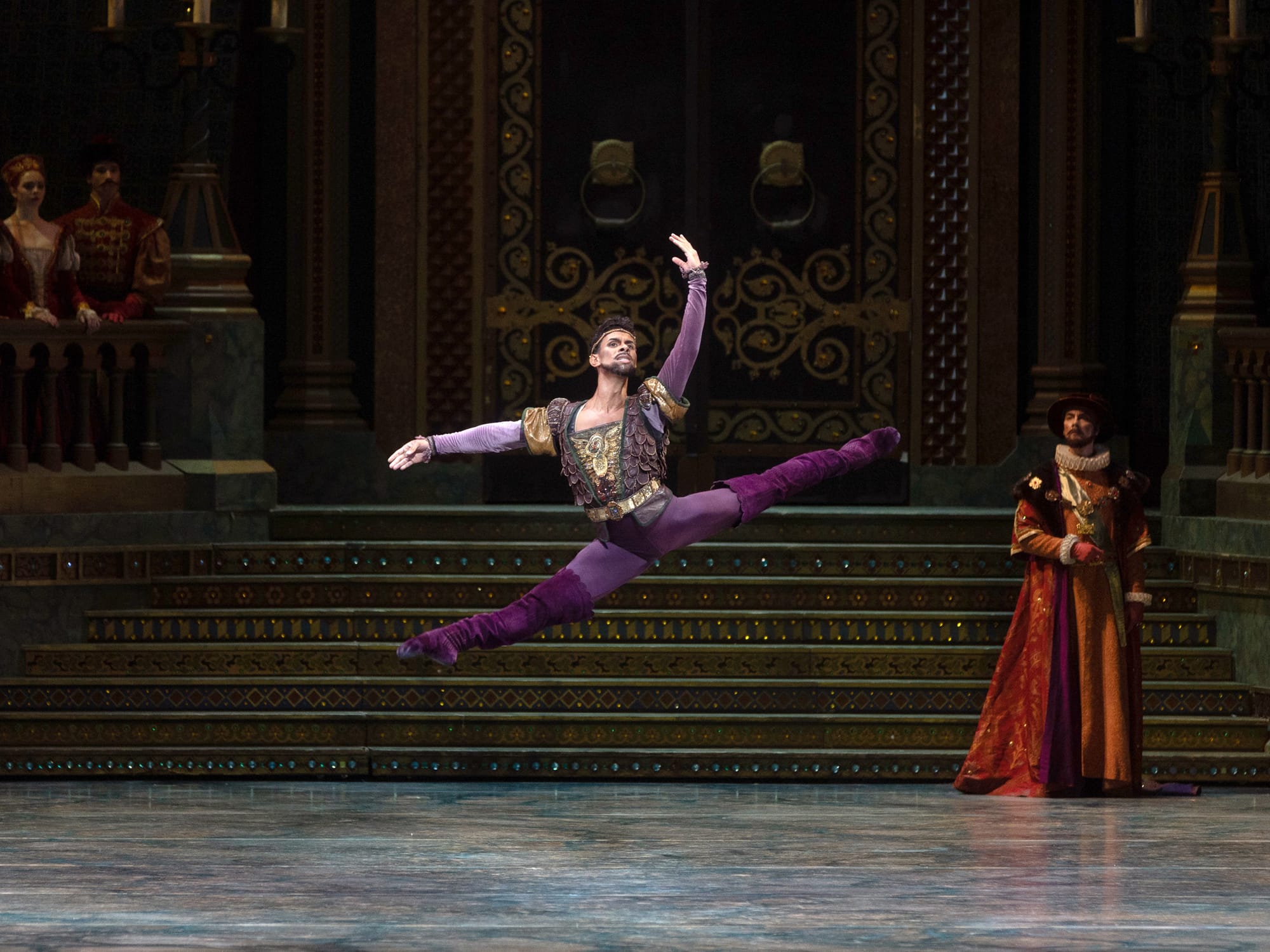
Once back to the lakeside, both leading couples stayed true to their chosen portrayals, with the beauty coming mainly from Shevchenko’s and Teuscher’s lines, rather than deep character work and expression. At least there was that, but with the Odette/Odile double role representing ballet's ultimate test of dramatic and technical mastery, a seasoned viewer was left wanting more. Both Shevchenko and Teuscher possess undeniable artistry – Shevchenko's deep intelligence and commitment to the personage, Teuscher's classical refinement and unshakeable technique. And so, one is left with a frustrating paradox: dancers of exceptional caliber who navigate one of ballet's greatest roles, yet fail to let their swans truly soar.
copyright © 2025 by Marianne Adams
